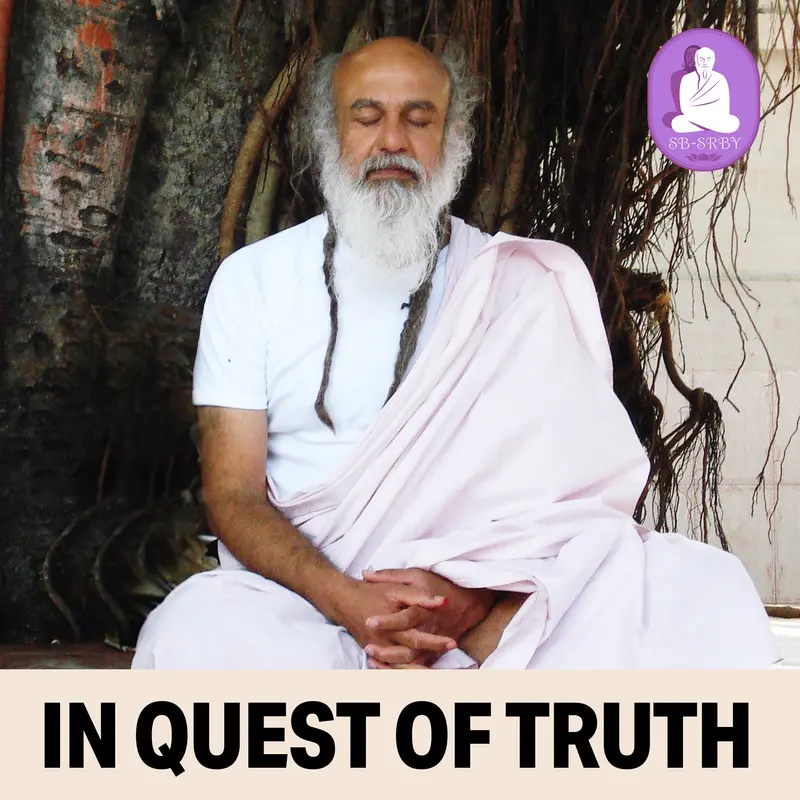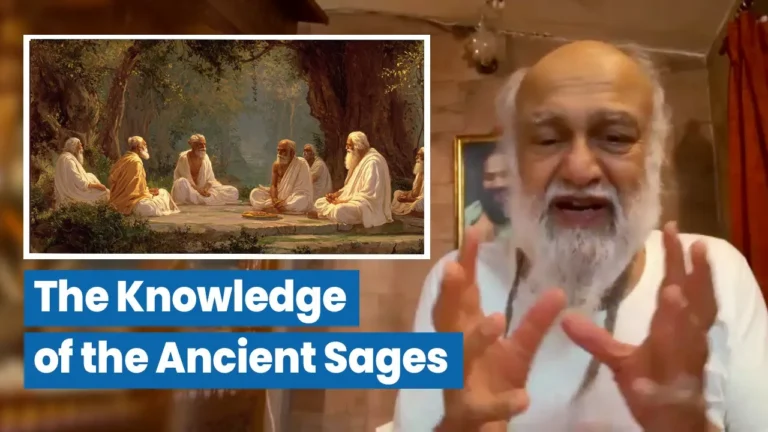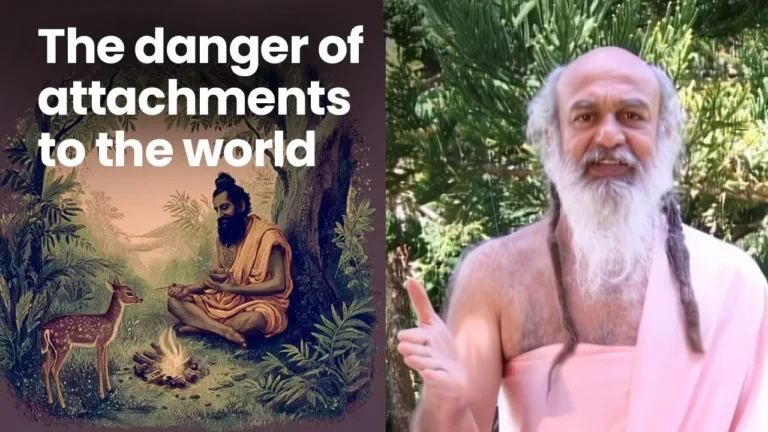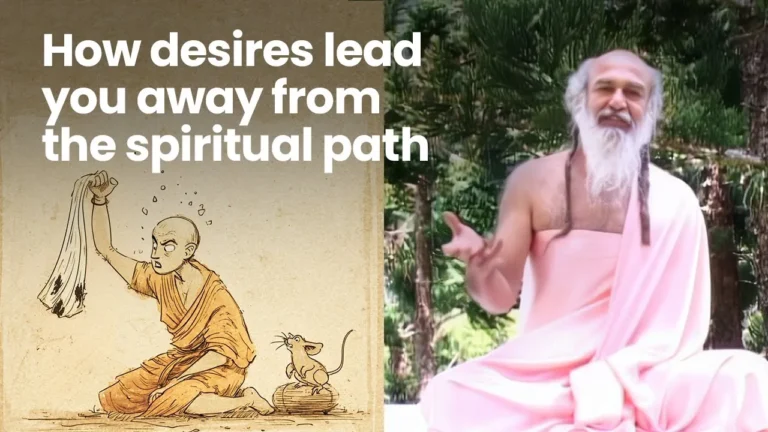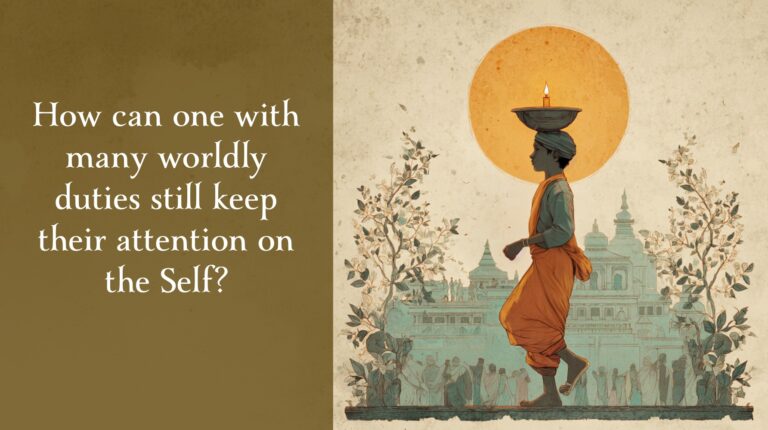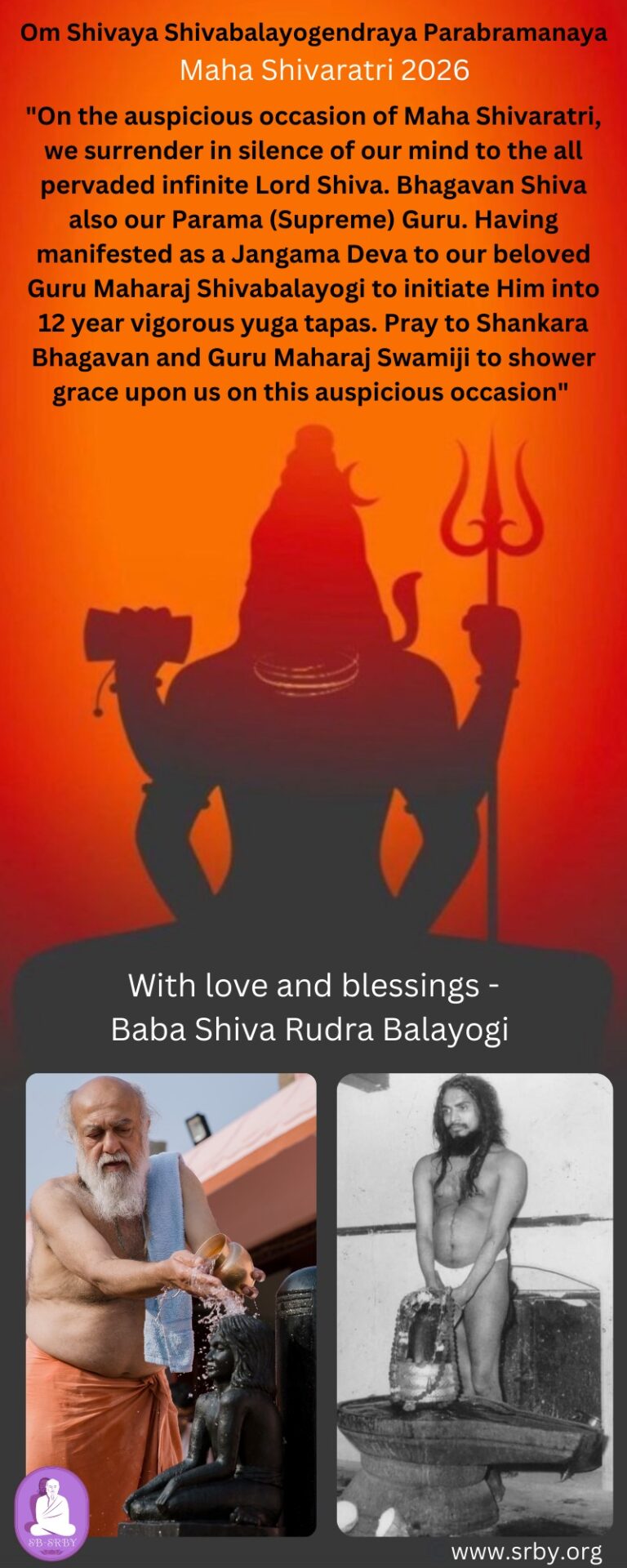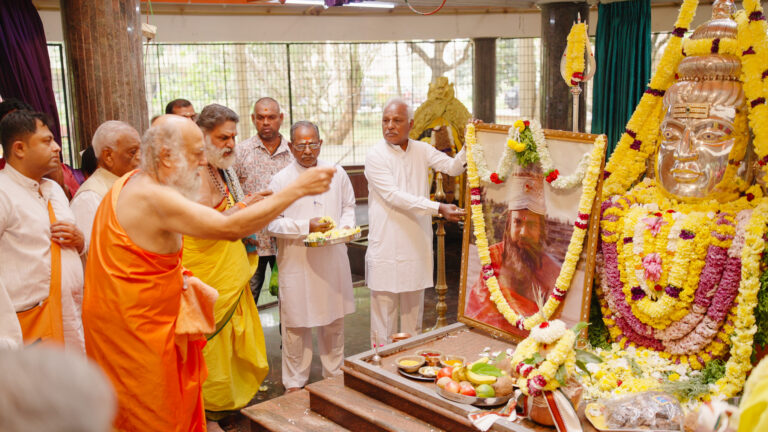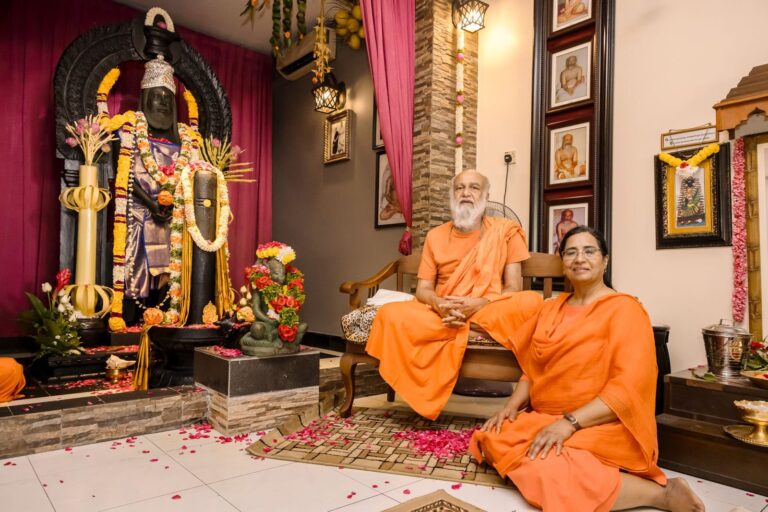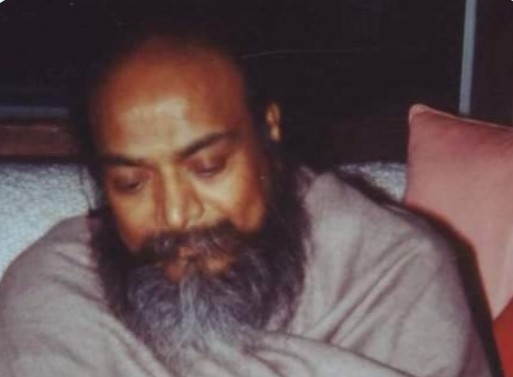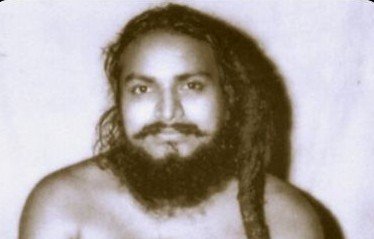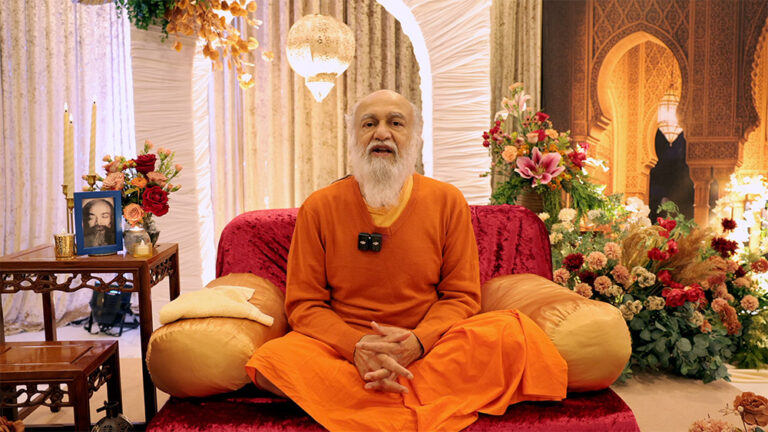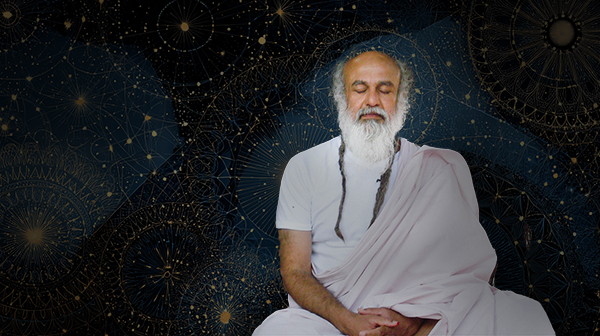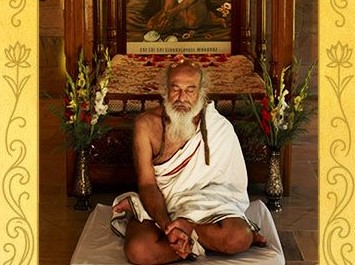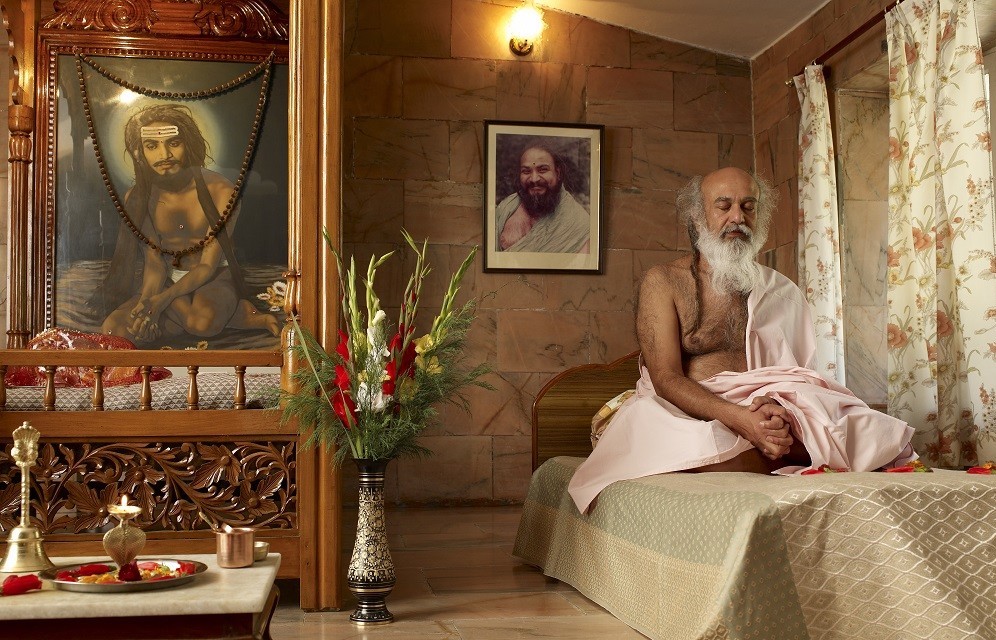
Question: Babaji, the ego is fairly strong and doesn’t want to give up. What gives the motivation for the ego to surrender?
Babaji: One thing is, maintaining this ego does not give you a permanent peace or an enjoyable tranquility. It always makes you get involved into dualities, good and bad, happiness and unhappiness, when you are looking for happiness, it will be like looking for water in the desert. Like that, you simply go on and on and on, keep trying in this world, trying to own everything thinking ‘this will give me happiness, if I become this I will be happy, if this status comes to me I’ll be happy’ all these things you keep thinking. Finally you will realize this was all simply an illusion, these are not the things that will give happiness and then you give up the ego and it finishes. If you hold on to the ego you are into trouble all the time. When you realize because of this ego you were into trouble then you will give up that ego.
Same questioner: But it’s not the intellect that gives the drive for giving up the ego, is it more the Divine ordination?
Babaji: You see, either you learn in a softer way when the Guru teaches or you get caned and you have to learn the hardest way [laughter] That’s the life always. We tell, “That’s the fire it will burn you, don’t put your hand in it, don’t put! Don’t put!” You go and put your hand in, then you will learn the harder way, after it burns your hands. That’s the ego problem.
Question: Babaji, would you distinguish between the ‘I’ concept, the ‘I am’ and the ego, which seems a little bit different, a bit grosser than the ‘I’?
Babaji: Actually to have this thought of ‘I’ itself is to be considered an ego because from that only stems all other egos, ‘me and mine’. When there is ‘I’, ‘I need something’. So if that ‘I’ also disappears then ‘I don’t need anything.’ As long as this ‘I’ is there ‘I need happiness, I need enjoyment. I need to have this.’ So thus the ego multiplies further and further. The beginning is from the ‘I’, before that it is the consciousness. That consciousness also disappears when totally, effortlessly you settle into the Self giving up all cravings including the ‘I’. When that ‘I’ also goes then your existence problem also ends. There is no problem whether you exist or do not exist, you won’t be thinking, ‘I need to exist.’ Everything disappears, nothing is there. That’s how the things disappear otherwise ego multiplies, one ego, another ego, another ego. Finally you think the existence problem itself is an ego. If you don’t have that existence problem then the ‘I’ also is not there. Then ‘I’ needing something is not there.
Same questioner: Doesn’t consciousness imply an ‘I’? Something being conscious of something?
Babaji: When there is consciousness you have to be conscious of your Self, the consciousness of existence. So it goes further, deep into Nirvikalpa Samadhi further also, that is also given up, that ‘I exist’ is also finished, done.
Same questioner: So then that state is actually beyond consciousness?
Babaji: Beyond, it’s totally beyond everything. To give a clue to the student we have to be using that imagination because existence is one of the basic ego problems by which anyone becomes insecure and goes into a conflict. It is the same example as I have told, like in primary school our teacher used to tell, “If anything happens in your life think, ‘after all my head is going to be cut off, finish.’” As long as this head is there the problem is there that someone should not trouble me. Once this head itself is gone nobody can trouble me anymore, that’s finished.
That’s how, as long as this ‘I’ is there the trouble happens. As long as that consciousness is there at any moment that ‘I’ can trouble. Until that’s also gone you go on waiting. That’s what is Tapas, burning of this ‘I’, burning of this consciousness, everything.
Same questioner: Burning of individuality?
Babaji: Everything. When that ‘I’ goes that individuality goes.
Same questioner: So Babaji, a minute ago you said, when ego gives rise to another ego and another ego, would you define ego in that way? What do these many egos mean?
Babaji: A consciousness by arising which keeps you away in consciousness from the reality is the ego. I’ll repeat, a consciousness by arising which keeps you away in consciousness from the reality is the ego.
Same questioner: Then consciousness by itself keeps you unaware of your reality?
Babaji: Finally that is the truth. That is the thing that you will realize and give up that also, that turbulence ends, for which you keep struggling, wanting happiness, wanting happiness. If you stop that ‘wanting of happiness’ itself then all trouble stops, finishes. That must happen effortlessly giving up that individuality, effortlessly there is no more ‘me’, nothing is there. [Pause] Don’t get panicked, you are going to be there at all times [laughter].
Question: So all we can really do is keep practicing, keep trying to remain quiet and not let another ego and another ego come?
Babaji: Yes, that is all the practice there has to be, to keep quiet, to shut up! A little tough word! [laughter].

